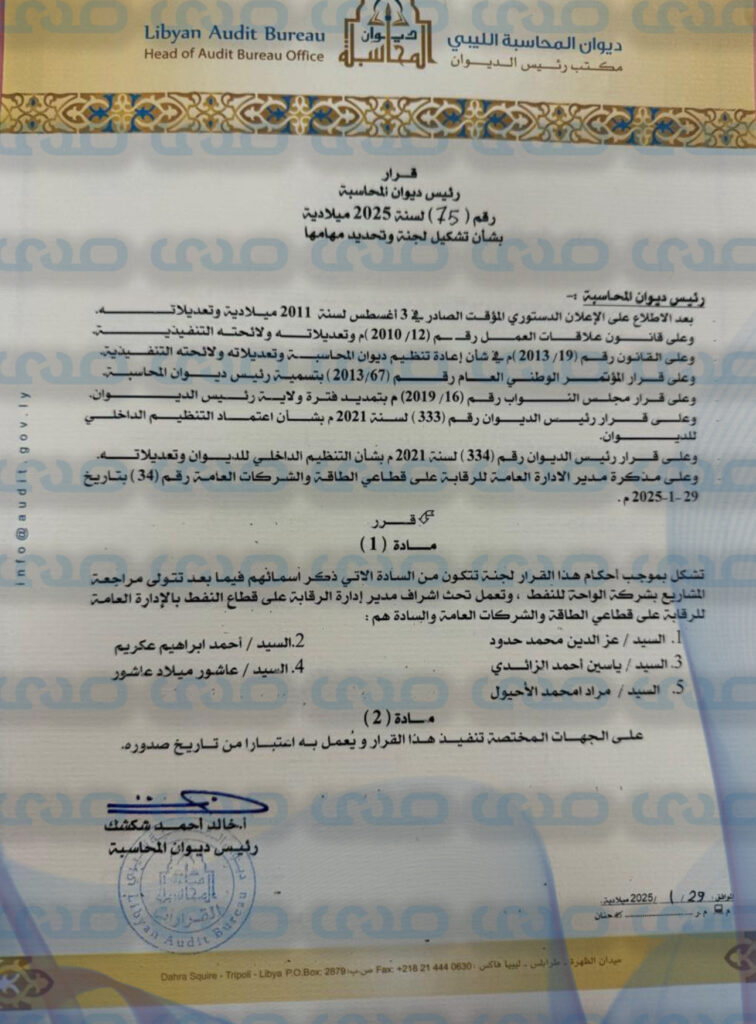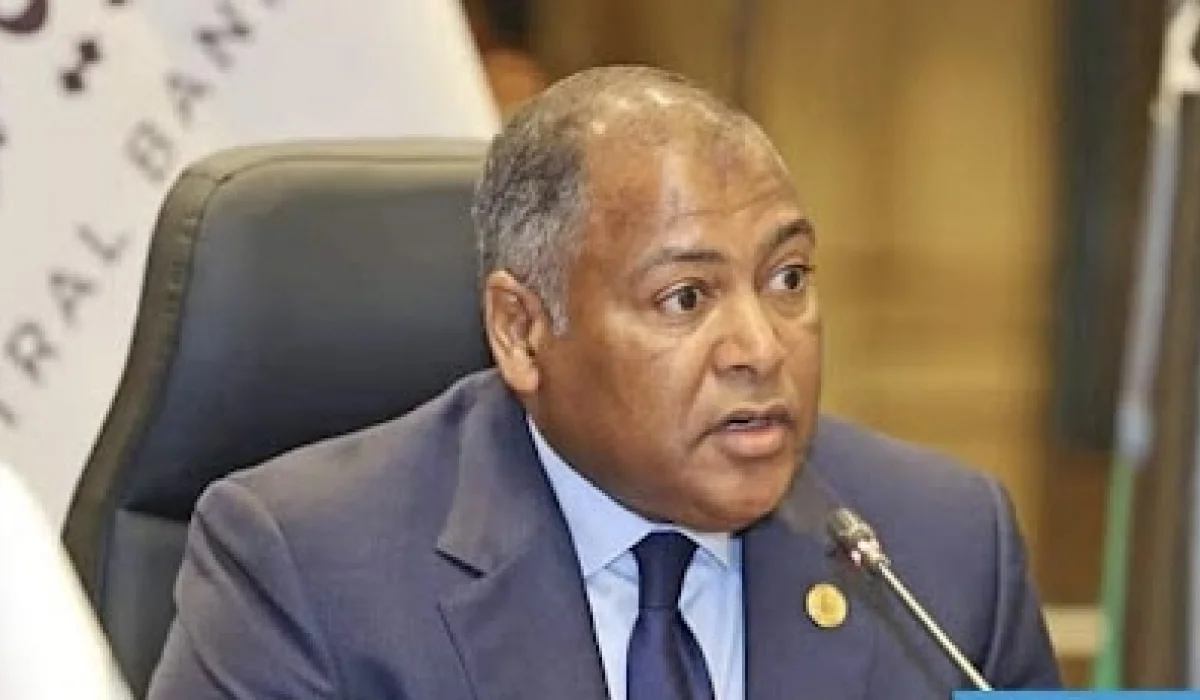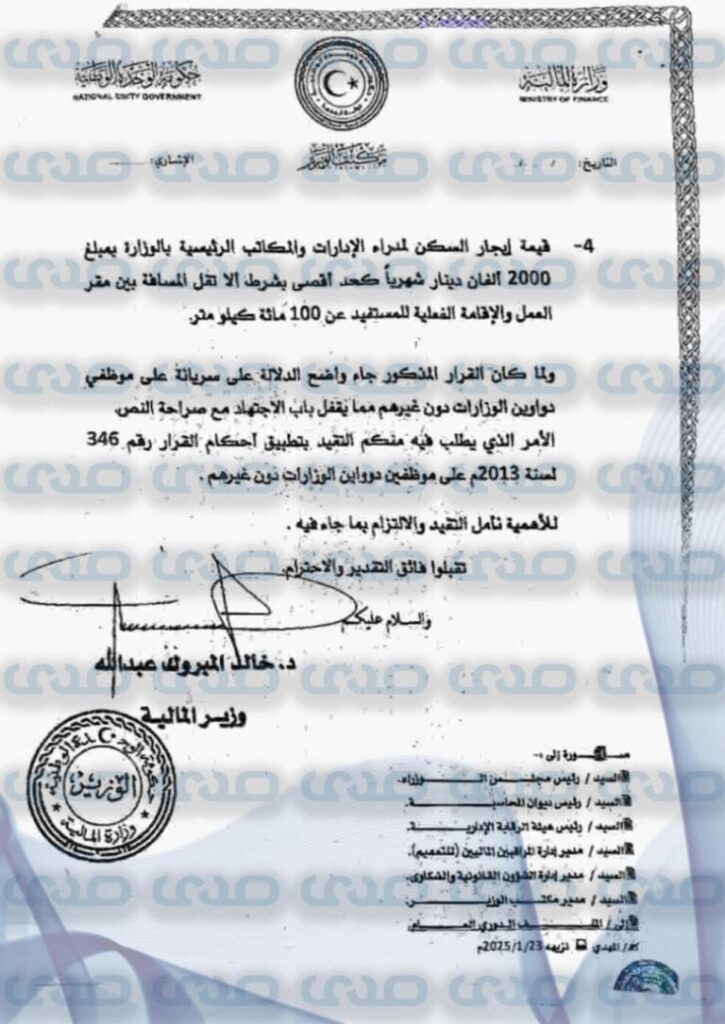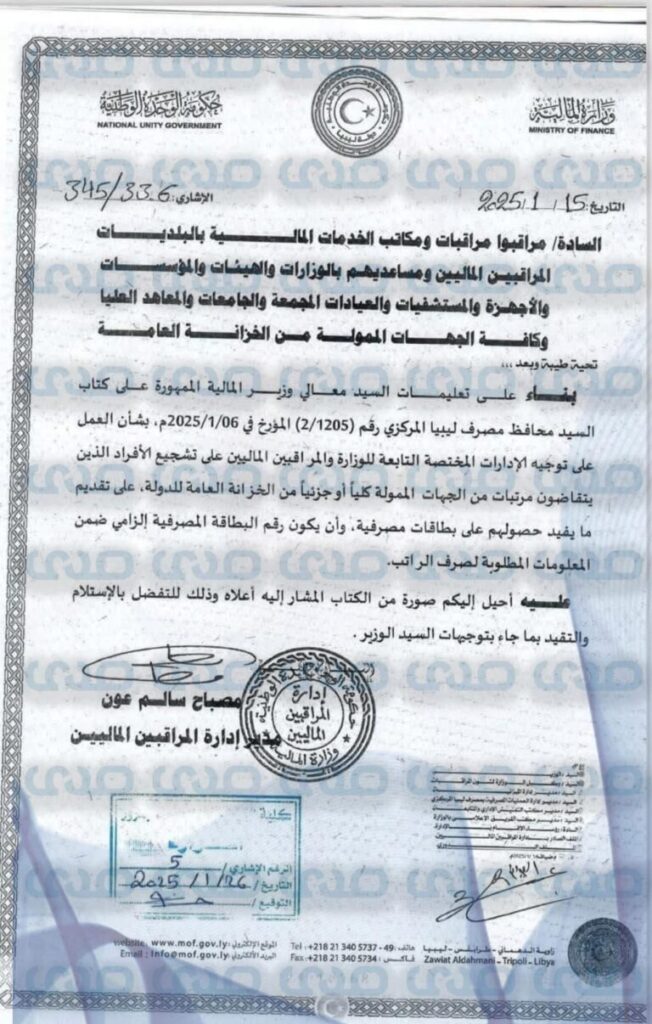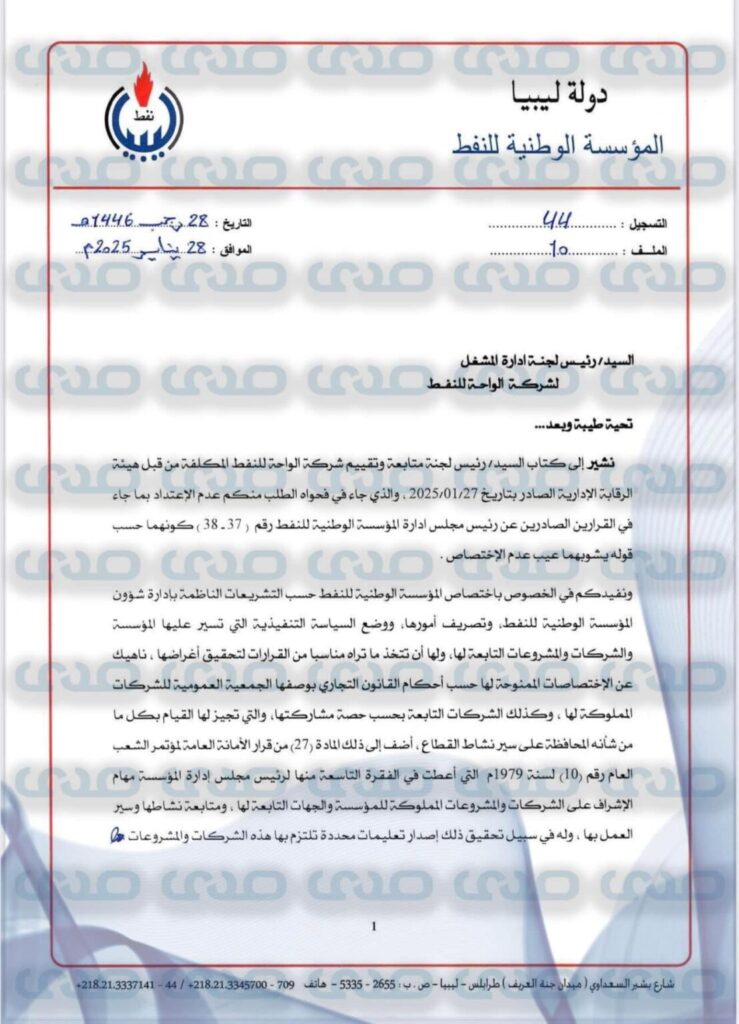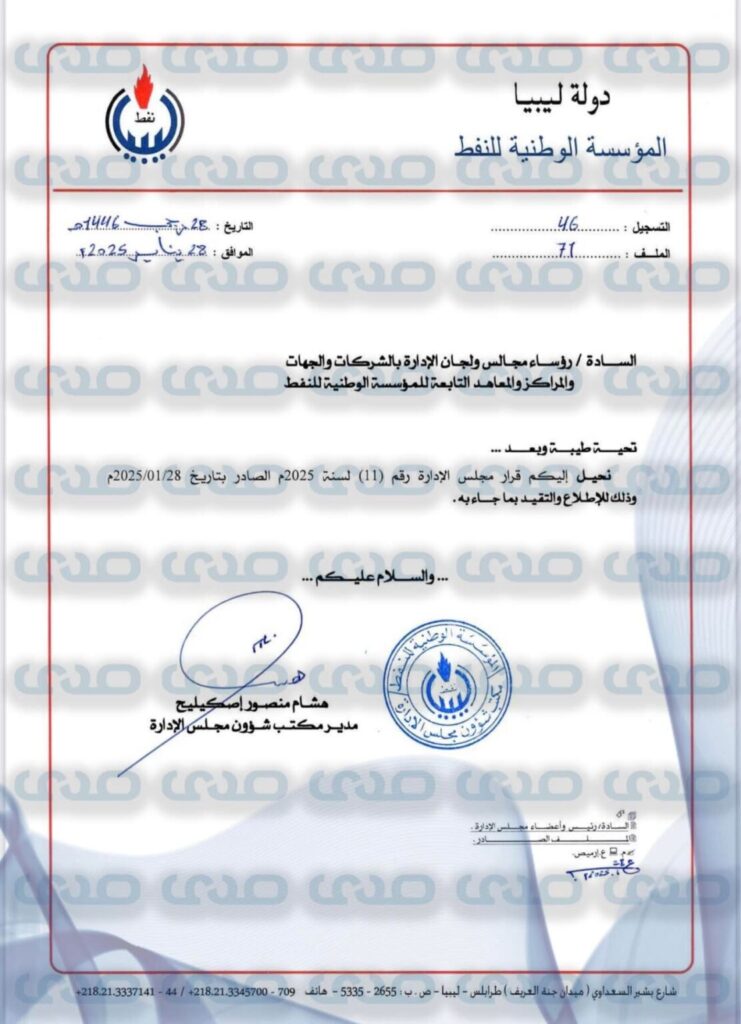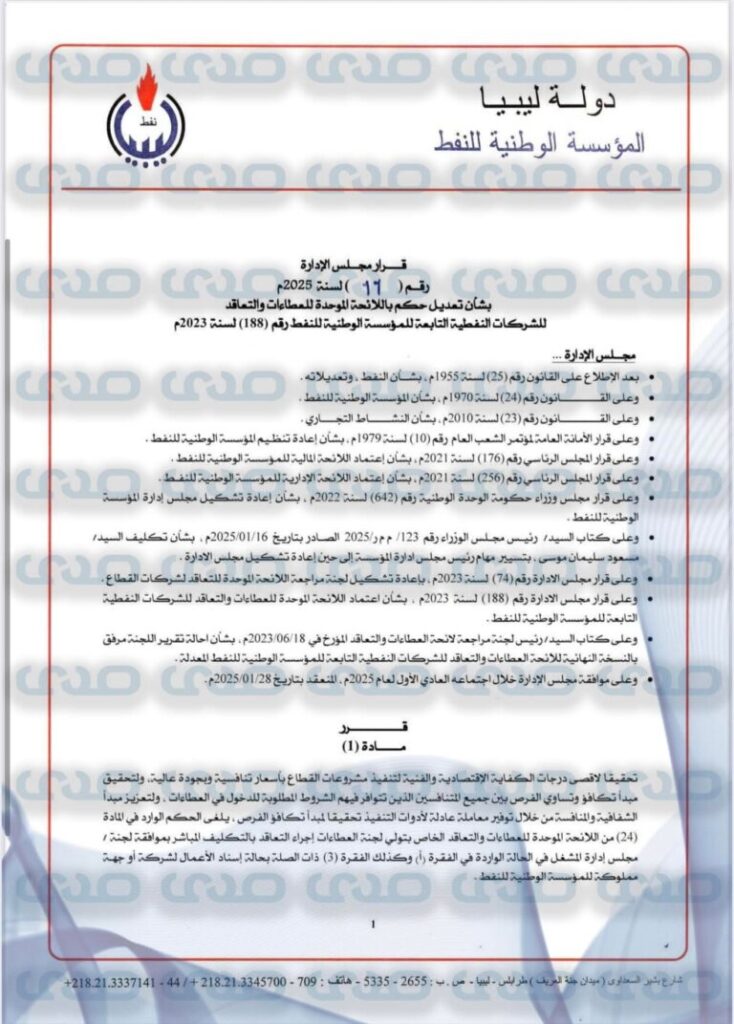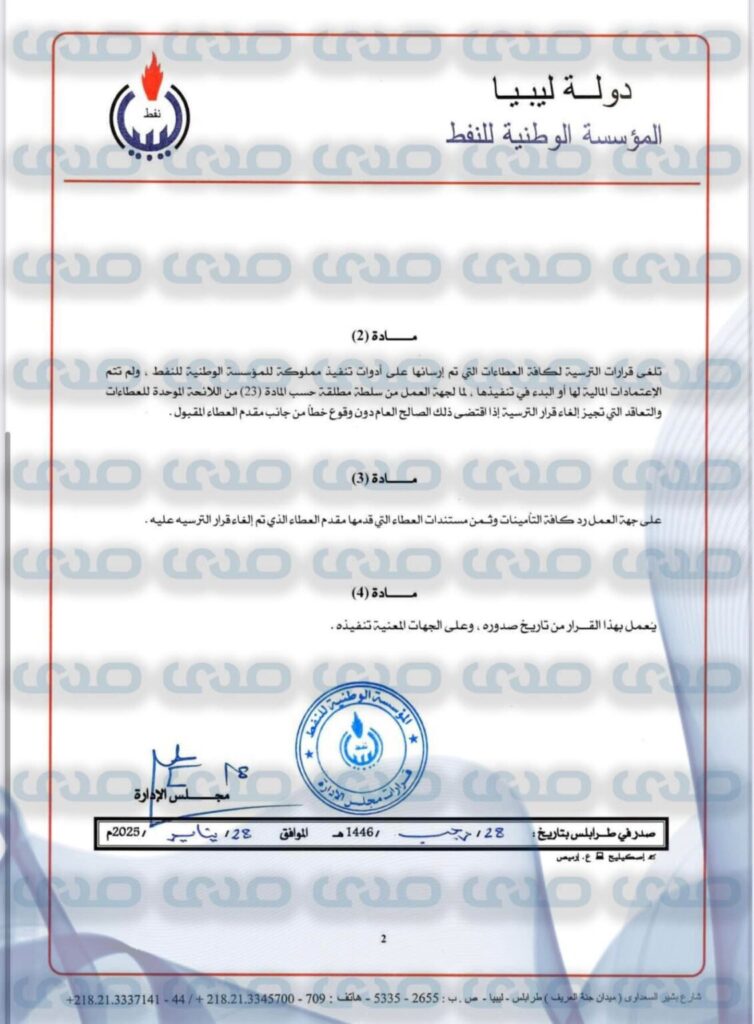The Chairman of the National Oil Corporation, Masoud Suleiman, told Reuters on Friday that the corporation will focus on increasing production and enhancing transparency as Africa’s second-largest oil producer seeks to recover from years of instability.
The state-owned corporation oversees fossil fuel production, which has been disrupted since the ousting of leader Muammar Gaddafi in 2011 due to conflicts. Production also declined multiple times last year amid disputes among rival factions, including over the leadership of the Central Bank of Libya, which controls the country’s crude oil revenues.
In response to emailed questions, Suleiman stated, “The National Oil Corporation has a strategic plan to increase production, and we will continue implementing it while making necessary adjustments whenever required.”
According to the corporation, NOC’s oil production reached approximately 1.4 million barrels per day by the end of 2024, while the country’s long-term goal is to achieve 2 million barrels per day.
Last month, Oil Minister Khalifa Abdel-Sadeq told Reuters that Libya needs between $3 billion and $4 billion to reach a production level of 1.6 million barrels per day.
Suleiman also emphasized his focus on enhancing transparency within NOC, which may include streamlining operations and potentially closing some offices.
NOC fully owns 15 subsidiary companies, according to its online platform, in addition to holding shares in joint ventures and other supervised companies.
“Above all, I will focus on establishing transparency within the corporation so that any investor, whether the state or our foreign partners, can have a high level of confidence that any funds injected into the National Oil Corporation will be used in the best possible way,” Suleiman stated.
Referring to NOC’s procurement arm responsible for acquiring equipment and other services for oil field operations, he added, “I am still working on forming a complete picture of what has been accomplished in some companies, such as the Mediterranean Oil Services Company.”
Suleiman indicated that he would take a cautious approach in evaluating and potentially closing some branches, particularly those that were recently established.
The Mediterranean Oil Services Company has offices in Düsseldorf, Germany, and since 2020, in Dubai. Libyan media reported that it also opened an office in Istanbul last year.
Suleiman noted that closing some offices could simplify the company’s administrative structure, making it easier to manage in the future.
He also stated that he is in contact with the Libyan Attorney General regarding a request to halt the crude oil swap program, which NOC had used as an alternative financing method by exchanging crude oil for fuel.
Suleiman stressed that he will work with the Central Bank of Libya and the Tripoli-based Government of National Unity to establish an appropriate mechanism for securing a sufficient budget to ensure a stable supply of refined petroleum products across the country.
His comments to Reuters mark the first public confirmation of potential office closures and his first remarks on the Attorney General’s decision to halt NOC’s use of crude oil swaps for fuel.











